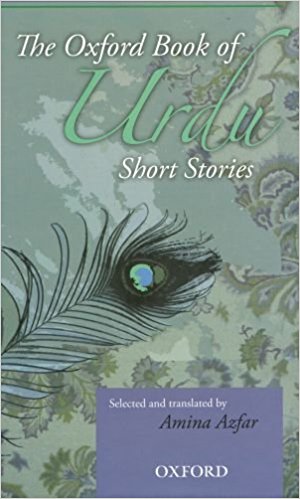Editing a substantial collection of short stories is a daunting task; it becomes especially so when the editor also doubles up as the trans-lator—that too of not one or two stories in the collection but all 22 of them. That Amina Azfar is a prolific translator is apparent from a quick look at the fly leaf of her new book; she has previously translated Akhtar Husain Raipuri’s Gard-e-Raah (Dust of the Road, for which she was given the Hasan Askari Award for the best work of translation for the year 2007 by the Pakistan Academy of Letters); Humsafar, an excellent biography of Akhtar Husain Raipuri by his wife and comrade Hameeda; The Penitence of Nasooh and the Story of Maulvi Nazir Ahmed in His Words and Mine by Mirza Farhatullah Baig; Roshnai (The Light: A History of the Movement for Progressive Literature in the Indo-Pakistan Sub-continent by Sajjad Zaheer, a most useful book for the student of the Progressive Writers’ Movement sadly unavailable in India; and Bazar-e-Husn (The Courtesan’s Quarter by Premchand).
That Amina Azfar is indefatigable in her literary endeavours is clear from this impressive body of work, incidentally all of which is published by Oxford University Press, Karachi; she is also one not content to rest on her laurels. With this book, Azfar dons the mantle of both editor and translator. Unfortunately, to an Indian reader her selection seems a trifle predictable at first glance. But keeping in mind the fact that the book, published as it is in Karachi, was primarily meant for a Pakistani readership, her task as an editor was clearly to introduce some of the great stories written in Urdu over the last 70-odd years. There are some stories here—like ‘The Chess Players’ and ‘The Shroud’ by Premchand, ‘Toba Tek Singh’ and ‘Open’ by Saadat Hasan Manto, ‘Kalu Bhangi’ by Krishan Chander, ‘Lajvanti’ by Rajinder Singh Bedi, and ‘The Shepherd’ by Ashfaq Ahmed— that appear like tired ghosts familiar as we are with their de rigueur presence in almost all collections of Urdu short stories. Given the sheer number of collections of Urdu short stories now available, the reader could do with a different set of sampler’s menu. While no collection of Urdu stories can do without Premchand, Manto, Bedi and Krishan Chander, surely an editor can choose something else from the vast ouvre of these very prolific writers.

